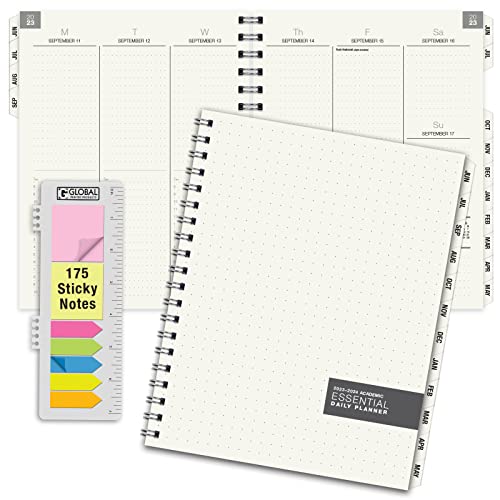How to deal with overwhelm – seven practical tips
Feeling swamped? Don’t let overwhelm control your life. Discover seven practical tips for how to deal with overwhelm in order to regain your balance and peace of mind.
Transform your stress into success with simple skills that can be practiced and habitual to make your days run smooth.

*This post contains affiliate links. Please see full disclosure policy below.
Do you often need help with your day-to-day life? Are you constantly bombarded with many thoughts while experiencing anxiety and heart palpitations? Many of us experience these moments of overwhelm.
Still, if it happens often, it can be physically and mentally exhausting. Fortunately, many approaches can help reduce stress and manage the intense sensations of being overwhelmed.
How to deal with overwhelm
In this blog post, I will provide ten helpful suggestions on how to deal with overwhelm in everyday life situations. By focusing on self-soothing, calming the brainwaves, and maintaining positive thinking, one can balance work and playtime, thereby reducing anxiety and enjoying life more fully!
Identify The Signs of Overwhelm
Recognizing overwhelm is a crucial first step in dealing with it. However, it may be easier to identify the signs and symptoms once it’s too late to do anything about it. Overwhelm can creep up slowly or suddenly hit you, leaving you feeling like everything around you crumbles.
Sometimes, we feel overwhelmed with tasks, duties, and responsibilities. We may lack the time to fulfill them, leading to a sense of helplessness as we struggle without making visible progress. It’s even worse when there’s no one to support us, and delegation doesn’t help either. Constant stress and anxiety can also contribute to overwhelming feelings.
Academic Planner/Calendar – Jul.2023 – Jun.2024, Weekly and Monthly, 8Forvencer Lined Spiral Journal Notebook with 300 Numbered Pages, B5 College Ruled Thick Journals for Writing with 100GSM Paper, Hardcover Notebooks with Contents for Work, School, Women, Men, Orange
WRITECH Retractable Gel Pens Quick Dry Ink Pens Fine Point 0.5mm 10 Assorted Unique Vintage Colors For Journaling, Drawing, Doodling, and Notetaking (Vintage 2)
Elastic Bookmarks Set Multi Color Elastic Rope Bands Planner Bookmarks Include 30 Pcs Stainless Steel Teardrop Paper Clips and 12 Pcs Elastic Bands for Office School Reader (Bright Color)
12 Set Elastic Planner Bands Stretchy Closure Bands Elastic Book Strap Adjustable Book Strap with Pen Holder Bookmarks Elastic Strap Pen Holder Planner Accessories for Journals File Notebook, 3 Colors
SUIN Hardcover-Journal-Notebooks, 6 Packs A5 Lined Journals Notebook for Writing 200 Pages, 8.2 x 5.5 inch, 6 Colors Classic Ruled Notebooks for Work/Travel/College
Clabby 4 Pieces Adjustable Elastic Band Pen Holder Colorful PU Leather Sleeve Pouch Notebook for Hardcover Journals, Notebooks, 8-1.5 Inch, Detachable (Khaki, Gray. Brown, Navy)
When we feel overwhelmed, fear often wins over potential actions, leading us to freeze up and avoid thinking about the situation or fixating on one task while ignoring others entirely. To prevent this, it’s important to remember that no feeling lasts forever, and everything ultimately depends on how proactive we are willing to be despite the obstacles.
Having too much to do and needing to figure out how to get it done can set us up for frustration. Taking time, even if it’s just a few moments or days, to look at the situation objectively can help provide some perspective and come up with a plan that works best for our workload.
Asking questions like “What are my biggest stressors right now?”, “Do I need someone else’s help?”, and “How can I prioritize this work effectively?” can be beneficial in overcoming feelings of overwhelm. By reflecting on these questions, we can gain insights that help us find solutions and break down the feeling of overwhelm.
Acknowledge Your Feelings: Accept and process emotions
It’s common to overlook our own emotions and shut them down when they become too overwhelming. While this might work temporarily, it’s essential to accept and deal with them if we want to overcome those intense feelings. So why take some time for yourself right now and appreciate your current emotions? What is causing these thoughts of overwhelm in you and why are you feeling this way?
Taking some time to process your emotions can have a significant impact on dealing with those intense moments. Ignoring your feelings and pretending they don’t exist is easy, but it won’t make them go away. By pausing and assessing where these emotions are coming from, you can take action instead of running away from them.
It’s important to acknowledge your own emotions without judgment. Allow yourself that space for understanding why you’re feeling a certain way before trying to find an immediate solution or explanation.
Once you’ve processed your emotions in this way, you can come up with a strategy to reduce whatever is causing negative emotions. It may seem daunting, but remember that you have all the power within you!
7 Techniques to Combat Overwhelm
Managing overwhelm can be challenging. Here are some tips to help you cope:
Set Boundaries
It’s important to know your limits and communicate them clearly with others. Learn to say “no” when necessary and avoid overcommitting yourself. By setting boundaries, you can protect your time, energy, and mental well-being.
Take Your thoughts Captive
Negative thoughts can exacerbate overwhelm. To shift your mindset, replace negative thoughts with affirming statements like “I am capable of handling this” or “I have overcome challenges before.” Remind yourself of your strengths and past successes to build resilience when facing overwhelm.
Practice deep breathing
When overwhelmed, your body’s stress response can be triggered. Deep breathing exercises can help activate the relaxation response in your body, reducing stress levels.
Take slow, deep breaths in through your nose, hold it for a few seconds, and then exhale steadily through your mouth. Repeat this several times to help calm your nervous system.
Simplify and declutter
Overwhelm can often stem from having too much on our plates or being surrounded by clutter. Take some time to simplify your schedule and declutter your physical space. Remove unnecessary obligations from your calendar and create a calming environment that brings you peace of mind.
The 80/20 rule
Also known as the Pareto Principle, this rule states that 20% of your efforts produce 80% of the results. Identify the tasks that have the most impact and prioritize those first. By focusing on the most important tasks, you can tackle overwhelm more effectively and achieve desired outcomes.
Delegate and outsource
Recognize when it’s appropriate to delegate or outsource certain tasks to others who are better suited or have more capacity to handle them. This frees up your time and mental energy to concentrate on responsibilities that truly require your attention.
Take regular breaks
Allow yourself short breaks throughout the day to rest and recharge mentally and physically. Stepping away from work periodically can improve productivity, reduce stress, and prevent burnout. Use this time to engage in activities that help clear your mind and provide perspective.

Feeling overwhelmed is something that we’ve all experienced at some point in our lives. It’s not a pleasant feeling, and it can be not easy to know what to do when it happens. However, there are steps that we can take to avoid feeling this way in our day-to-day lives.
One of the most important things that we can do is to learn how and when to say no. It’s common to feel tempted by new tasks or opportunities, but it’s important to prioritize our mental and physical health by taking breaks and declining offers if necessary.
If you’re someone who enjoys being helpful and involved, saying no can be especially challenging. But don’t worry, it’s okay to set boundaries and take care of yourself. One of the best ways to manage overwhelm is by setting realistic goals for each day or week, breaking larger tasks down into smaller steps that are more achievable.
It’s great to have ambition, but it’s important not to overload yourself with unrealistic expectations that may prove too much to handle.
Create a Positive Mindset with Positive Thinking
It’s true that the way we think has a significant impact on how we feel and view life.
Continuously convincing yourself that things will not go well can make it a reality. Therefore, having a constructive and positive attitude is one of the best ways to take control of your life and relax. Simple strategies, such as smiling more often, repeating mantras, or focusing on the positive aspects of every situation, can make a world of difference.
When it comes to staying positive, focusing on a brighter outlook does not mean you should ignore reality. Instead of dwelling on negative experiences and situations, you can shift your focus towards finding solutions. A great way to do this is by keeping an optimism journal. Take some time every day to write down three to five things that went well during the day. When you feel overwhelmed or things get hard, remind yourself of those good aspects of life.
Keeping up with this habit reinforces positive thoughts and helps manage overwhelming feelings.
Moreover, being aware of all the positives helps us gain clarity about what we genuinely want in life. Sometimes, our feelings of overwhelm come from trying to do too many tasks or activities or pleasing others more than ourselves. By having an optimism journal, we can focus on attaining success for our personal lives.
2024 Planner – 2024 Planner Weekly and Monthly, Jan. 2024 – Dec. 2024, 6.4Weekly Planner Pad – To Do List Notepad with 52 Undated Sheets(8.5
Global Printed Products Essential 8.5×11 Monthly & Weekly 2023-2024 Planner – (8.5
2024 Planner – Weekly and Monthly Planner Spiral Bound, Runs from January 2024 to December 2024, A5 (6.7
Daily Planner Hourly Schedules Appointment Planner Undated with To-Do List,Meals,Notes 10
To sum up, it is vital to be aware of our mental and emotional well-being. Everyone can easily feel overwhelmed at times, but several helpful guidelines can help us minimize these emotions in our everyday life. Taking time off work or school is a great starting point, and setting specific boundaries between yourself and others can provide clarity when dealing with stressors.
Additionally, setting aside regular “me” time for positive self-talk sessions may help increase confidence levels, which in turn reduces overall worry intensity. If that’s not enough, why not try out different relaxation activities or settle your mind with techniques such as guided meditation or yoga?
By taking even a few steps like this each day, people can find themselves better equipped at managing their overwhelm while finding balance in their lives again. How amazing would that feel?
More Mindset Posts for Moms
- Six Reasons Time Blocking works for Moms
- Blessed Mom Quotes
- Getting Ready for Baby Overwhelm
- How to Declutter Every Room in Your House













